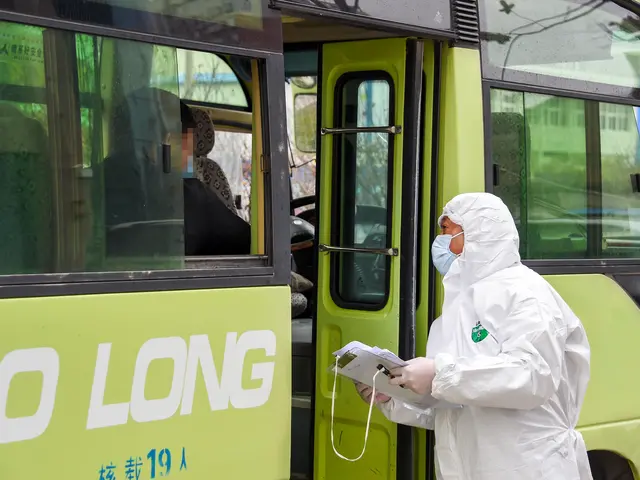When Zhang Qi and his family were about to end their holiday and return home, they were reeling in shock with the news that their hometown Wuhan was locked down due to the novel coronavirus outbreak.
"Daddy, we cannot go home, right?" his daughter asked.
No one in the family expected that they would be "trapped" in a motorhome in a strange city for the next 40 days.
Zhang, a 38-year-old Wuhan resident, with his wife, daughter and mother, drove their caravan to Xiamen, a coastal city in eastern China's Fujian Province, on Jan. 20. They visited all the must-see attractions in two days. The bad news came when they were ready to head back.
"I was very worried. Life might be tough in a strange city. In addition, we had been in contact with lots of people on our trip. What if we were infected with the virus?" Zhang recalled.
On Jan. 24, Fujian activated top-level emergency response to the epidemic. All tourist sites in Xiamen were shut down.
Zhang and his family had no place to go but stay in the caravan. They were told by local community workers to fulfill a 14-day quarantine, wear face masks, check body temperatures and report their figures every day.
At the early stage of the virus fight, many challenges lay ahead. "We originally planned to stay in Xiamen for three days. I only had one coat, and there was nothing to eat except for a few bowls of instant noodles. It was so cold at night that we had to cover ourselves with seat cushions to keep warm," Zhang said.
His mother frequently complained that it was Zhang's fault because he chose to travel during the Spring Festival holiday. Even worse, the motorhome was about to run out of fuel.
Zhang telephoned community workers, who came immediately and mobilized nearby enterprises to provide water and electricity for the family. Seeing the empty bowls of instant noodles, they also brought food and daily necessities for Zhang.
Not knowing what happened, nearby residents were once anxious when spotting Zhang's vehicle with a number plate from Wuhan. Community workers explained the situation to them and quelled people's fear.
"After the quarantine ends, citizens living around the parking lot came to visit us. An aunt came to chat with my mother every day. My daughter made friends with other kids, and public-spirited neighbors sent vegetables and snacks to us," Zhang said.
Returning home seemed nowhere in sight, so Zhang volunteered to work in the community's body temperature check point. "I want to do something for the community to pay back what they have done for us," he said.
In late February, Zhang received permission to return to Wuhan as the epidemic began to recede. Before they left, they received many gifts including local snacks, masks and disinfectants from Xiamen residents. His daughter also gave several cat toys to her friends.
After being "trapped" in the motorhome for 40 days, Zhang's family arrived at home safe and sound.
"It is like a dream," Zhang recalled. "We fall in love with Xiamen and take it as our second hometown. We will not forget those who lend a helping hand for us at hard times and will be back to the city when the epidemic ends."
(by Xinhua writer Fu Min)
 简体中文
简体中文

